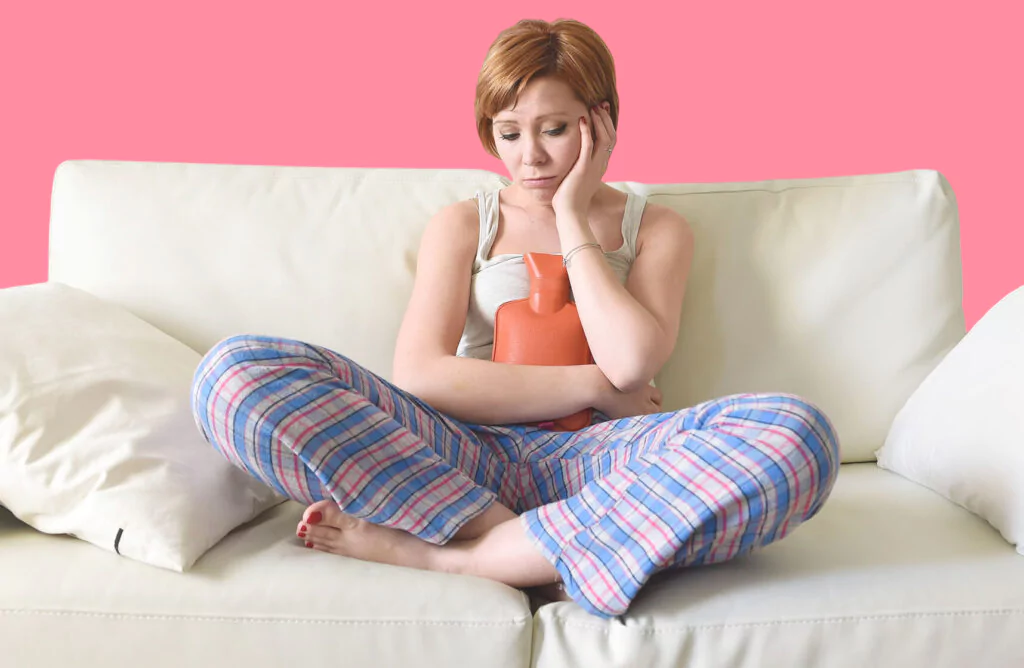Many girls and women suffer from annoying pain during their menstrual cycle, known as dysmenorrhea.
This condition is common and can affect daily activities and quality of life. Its severity varies from woman to woman.
What is dysmenorrhea?
It is pain in the lower abdomen or back during menstruation. It may be accompanied by other symptoms such as nausea, headache, or general fatigue.
Causes of dysmenorrhea
Every health problem has its own causes, and dysmenorrhea has a variety of causes, including:
- Severe uterine contractions due to the release of chemicals called prostaglandins.
- Hormonal imbalances.
- Certain medical conditions such as endometriosis or fibroids.
Symptoms of dysmenorrhea in women

A group of distinctive signs appear that help identify dysmenorrhea. The most prominent symptoms include:
- Severe pain in the lower abdomen or back.
- Persistent or intermittent cramps.
- Headache or dizziness.
- Nausea or vomiting.
- Fatigue and difficulty concentrating.
Types of Dysmenorrhea
It is divided into two main types, with different causes and characteristics:
- Primary dysmenorrhea: Appears from the onset of menstruation and is associated only with uterine contractions.
- Secondary dysmenorrhea: Resulting from other conditions, such as endometriosis or pelvic inflammatory disease.
Complications of Dysmenorrhea
Neglecting to address dysmenorrhea can have some negative effects on a woman's life. Although it is usually not serious, severe and recurring pain can lead to:
- Absence from school or work.
- Impact on psychological well-being.
- Difficulty performing daily activities.
Treatment of Dysmenorrhea in Women

There are several treatments that can help relieve the pain associated with dysmenorrhea, including:
- Pain relievers, such as anti-inflammatories.
- Drinking warm beverages and foods rich in magnesium.
- Using warm compresses on the abdomen.
- Exercise regularly.
- In severe cases: A doctor should be consulted to prescribe hormonal medications or examine medical causes.
Preventing Dysmenorrhea
A healthy lifestyle significantly reduces the risk of developing or the severity of symptoms, including:
- Maintaining a healthy lifestyle.
- Reducing caffeine and fatty foods.
- Practicing relaxation exercises and yoga.
- Getting enough sleep and reducing stress.
When should you consult a doctor?
There are signs that require immediate medical attention and not just home remedies:
- If the pain is severe and does not go away with painkillers.
- If it appears suddenly after your period was regular and painless.
- If it is accompanied by abnormal symptoms such as very heavy bleeding.
A Summary of Dysmenorrhea and How to Relieve Its Pain
Dysmenorrhea is a common condition, but it is treatable and manageable.
Maintaining a healthy lifestyle and getting medical follow-up when needed can help relieve pain and improve your quality of life.